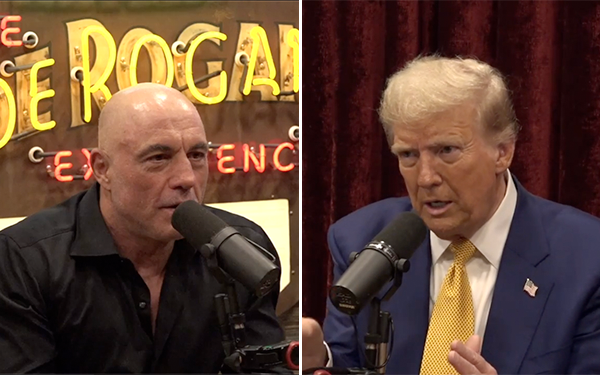
How can you be authentic in the media to
sell yourself as a politician or otherwise? One way may be to limit traditional TV exposure -- including advertising, and working in more time to babble on and on.
We hint here, of course, of what went on during the Presidential election. In particular those podcasts, and those that then aired on YouTube -- an increasingly powerful destination
for podcasts and other content.
Let’s back up for a second: The perhaps too highly focused subject of political TV advertising shows that this year the Donald
Trump campaign spent much less on traditional TV advertising than the Kamala Harris campaign.
The wild card was what occurred in between the cracks of these
campaigns.
Trump went on a total of 14 podcasts -- with 16 hours of interviews resulting in 124 million views on YouTube, according to one report. Harris? She went on 5 podcasts for a total of 3 hours. This generated 4 million views.
advertisement
advertisement
From this
analysis, we now know Trump got massive reach and engagement from young males -- a political audience that typically underperforms when it comes to elections.
Perhaps
working well alongside this is Trump’s persona and his style of being about to talk a lot. This includes the long rallies where he could speak nonstop for two hours -- so much so that people
would depart early.
This translates well to podcasts. On the Joe Rogan podcast, Trump talked for three hours.
Critics may wonder how
this can be effective -- let alone efficient.
We now may have the answer: It’s all about “authenticity” -- a word that can be attached to anything. Authentic
politician? Authentic liar? Authentic sleazy businessperson? It doesn’t matter.
Authenticity doesn’t always come with traditional short TV interviews with
journalists -- which can be heavily edited. And of course, there is much less of this in those 30-second or even minute-long political TV advertisements.
Legacy TV marketing is not going away. But consider that a deeper dive into all things political is now less about going to a politician's website to find out whether they plan to
raise or lower taxes, and less about whether they potentially have broken the law.
The deeper dive comes in a vague area that can be very time-consuming. Hearing a
politician babble -- and not always in a constructive way. Digital media is the necessary channel for these unedited-sounding, rougher appearances that some key political consumers apparently want --
even if the person talking is making up crazy stuff.
TV advertisers -- of all types, including political marketers -- have spent a lot of effort around data and
metrics terms like “awareness” and “attention.” Now there may be another “a” word now to consider: "authenticity." Now try and go measure that.